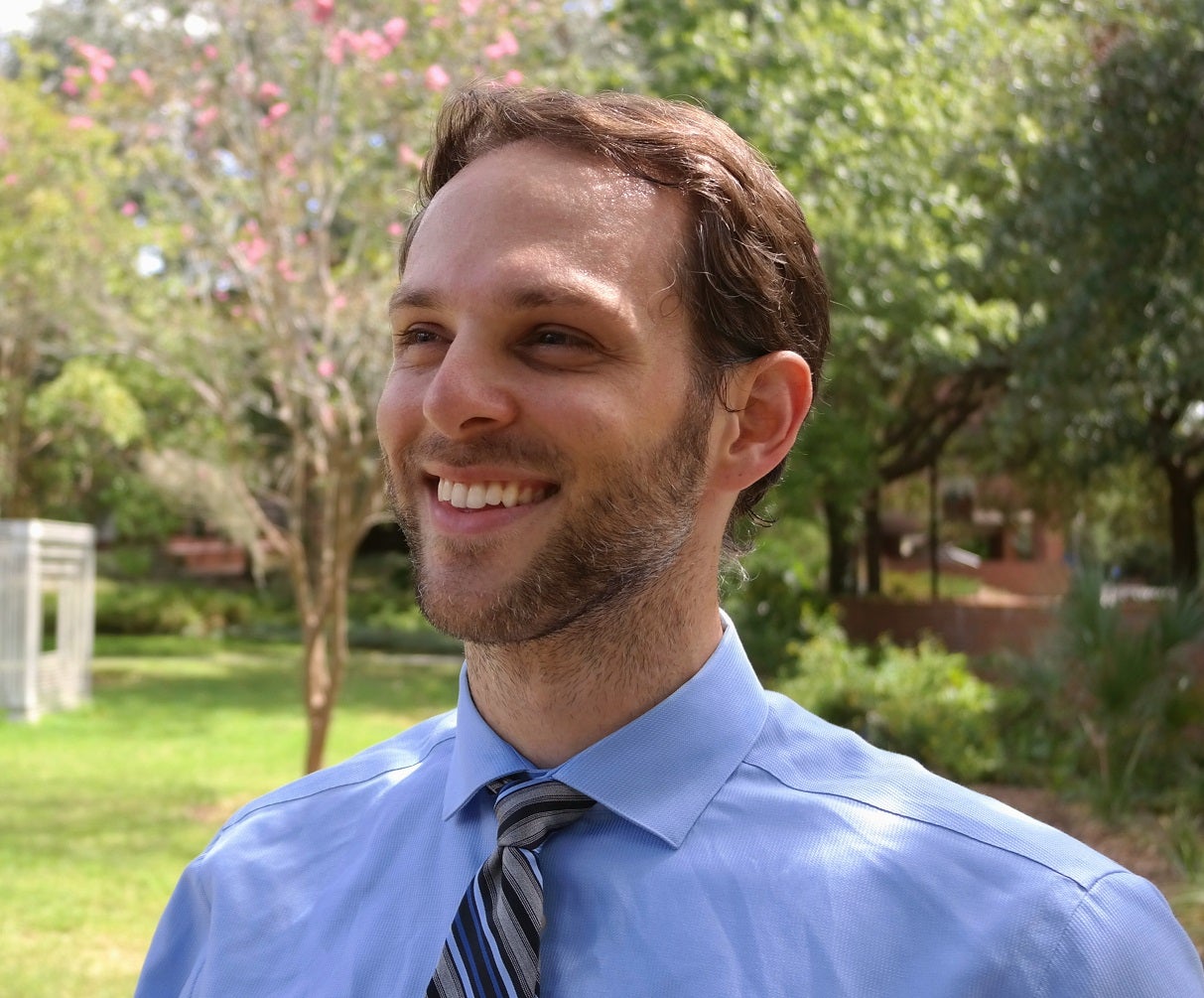Bill Schultz is an Assistant Research Professor at the McCourt School of Public Policy and an Associate Scholar of the Political Science Department at Florida State. Bill is passionate about using computational and statistical techniques to research pressing policy challenges, including the design of opioid disposal programs, the alleviation of administrative burdens and the effectiveness of ecological restoration initiatives. He received his Ph.D. in Political Science from Florida State in 2020.
Better Government Lab to Evaluate the Effectiveness of Social Programs Designed to Improve Economic Mobility


Better Government Lab receives $800,000 grant from Arnold Ventures
In August, Arnold Ventures awarded Georgetown University’s McCourt School Associate Professor Sebastian Jilke and the Better Government Lab (BGL) an $800,000 grant to fund the completion of five studies that assess the causal effects of social policies meant to improve economic mobility in the United States.
These five studies involve rigorous evaluations of state- and county-level innovations to offset economic hardship and improve economic mobility. The studies use either randomized controlled trials or quasi-experimental designs and will provide valuable insights into how safety net innovations may buffer the corrosive effects of economic hardship. All five studies include programmatic changes at the state or county level, thereby providing evidence on how these levels of government can improve economic mobility through improvements in state capacity.
“These studies will generate rigorous evidence and actionable policy insights, given that most social welfare policy innovations emerge at local and state levels,” says Sebastian Jilke, the project’s principal investigator and co-director of BGL.
BGL has hired three assistant research professors to execute this grant with a start date of September 1, 2025. All three formerly worked in the federal government and bring a wealth of experience and expertise in data analysis, evaluation and policy design to BGL. According to Jeremy Barofsky, BGL’s executive director and McCourt Associate Research Professor, “Bringing these three extraordinary scholars into BGL will also improve our lab’s overall research capacity and ensure these studies are completed in a thorough manner to drive evidence-based policy improvement.”
Mary Clair Turner is an Assistant Research Professor at the McCourt School of Public Policy. Her research focuses on education policy, tax policy and the delivery of public benefits programs. She earned her Ph.D. in Human Development and Social Policy from Northwestern University in 2020.
Stephanie Tepper is an Assistant Research Professor at the McCourt School of Public Policy. Stephanie conducts applied research to advance equitable access to government programs, especially related to economic opportunity and well-being. She earned her Ph.D. in Social Psychology from Cornell University in 2023.
About the Five Studies:
1. Unconditional Cash Transfers: Impact on Homelessness Prevention and Financial Stability (California): A large county in California provided a one-time $4,000 unconditional cash transfer to 2,250 low-income individuals, prioritizing those at risk of homelessness. By leveraging the randomized timing of cash transfer offers, we will estimate the causal impact of the unconditional cash transfer program on financial well-being and housing stability, as measured through county-administered benefits records.
2. SNAP Access: Three Studies on Simplified Income Reporting (Two States): The U.S. Department of Agriculture administers the Supplemental Nutrition Assistance Program (SNAP), which provides food assistance to one in eight Americans, or over 42 million people annually. However, participation rates vary considerably across states, and an estimated seven to eight million additional Americans are eligible for SNAP but are not enrolled in the program. In three randomized field trials in two states, we will work with a civic tech organization to evaluate whether reducing administrative burden through modifications to the income reporting and verification steps in the application process could increase access to benefits among eligible families.
3. Child Care Access: Streamlining Grant Applications (Minnesota): The American Rescue Plan allocated approximately $24 billion in Child Care Stabilization Base Grants (CCSBG) to the Department of Health and Human Services to help stabilize the child care labor market in the face of the COVID-19 pandemic. About a third of child care providers failed to take up these grants in Minnesota. Working with the Minnesota Department of Human Services (MN DHS), we will evaluate the impacts of different types of randomized outreach to increase take-up. This analysis will extend to measure the downstream impacts of take-up of CCSBG on the likelihood that child care centers stayed open.
4. Youth Economic Stability: Impact of Tax Benefits on Education and Filing Behavior (National): In 2020 and 2021, the Internal Revenue Service (IRS) issued $981 billion in direct payments to reduce financial stress brought on by the pandemic. Families with a qualifying teenage dependent could receive up to $1,100 in additional tax benefits. To evaluate the effects of these programs, we will use individual-level tax data to compare outcomes for households with qualifying teenage dependents to otherwise similar households with teenage dependents who were slightly too old to receive the benefits. We plan to evaluate whether eligibility for these pandemic-era payments among young adults and their families impacted their college enrollment decisions, labor force participation, and tax filing behaviors.
5. Public Safety: Evaluating an Alternative Response Program (Ramsey County, MN): Ramsey County, Minnesota, is implementing an Alternative Responses Initiative (ARI), which deploys additional dispatchable responses to 911 calls where appropriate. This evaluation will use data on over one million 911 calls matched with web-scraped data on arrests. The results will provide relevant information for Ramsey County and other local governments on the effectiveness of alternative police response programs on arrests.
About the Better Government Lab:
The Better Government Lab (BGL) is a joint research center of Georgetown University’s McCourt School of Public Policy and the University of Michigan’s Gerald R. Ford School of Public Policy. BGL evaluates what works in government—leveraging data analytics and computational methods to improve government effectiveness and make public services and programs more accessible. In collaboration with federal, state, and local agencies, civic tech and policy organizations, and research institutions, BGL tests and implements evidence-based solutions, translating research into action.
About Arnold Ventures:
Arnold Ventures is a philanthropy that supports research to understand the root causes of America’s most persistent and pressing problems, as well as evidence-based solutions to address them. By focusing on systemic change, AV is working to improve the lives of American families, strengthen their communities, and promote their economic opportunity. Since Laura and John Arnold launched their foundation in 2008, the philanthropy has expanded, and Arnold Ventures’ focus areas include education, criminal justice, health, infrastructure, and public finance, advocating for bipartisan policy reforms that will lead to lasting, scalable change. The Arnolds became signatories of the Giving Pledge in 2010.


